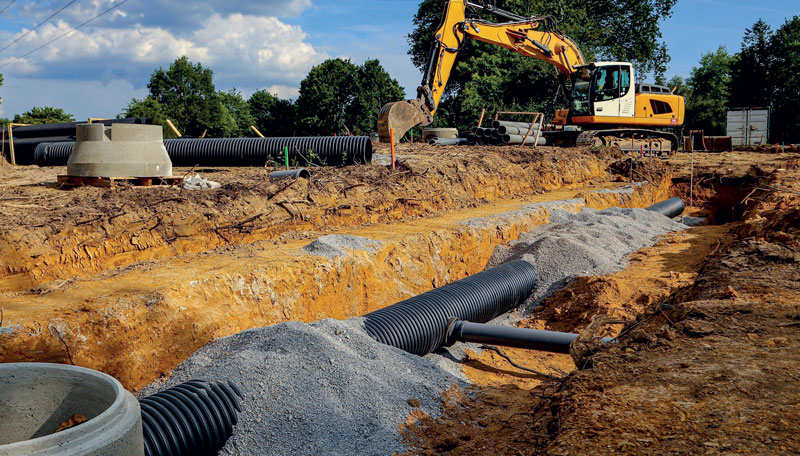The biggest issues of the month explored | Infrastructure
Inside Track
INFRASTRUCTURE
NIC makes infrastructure spending recommendations
30-year strategy for climate change mitigation and growth
By Ian Weinfass
Ministers must make the right policy decisions swiftly to improve UK infrastructure in support of economic growth and climate goals, the National Infrastructure Commission (NIC) has said.
The government’s independent advisory body released its second National Infrastructure Assessment in October – setting out a programme for the next 30 years. Among its recommendations is a call for major schemes to embed design principles throughout a project’s lifecycle, using forthcoming guidance from the commission’s design group.
 Clear plans and costings will need government backing
Clear plans and costings will need government backing
The NIC report repeats the call from its first assessment in 2018 to include design champions on the boards of all major projects, highlighting work of the ICE to further define and develop the scope of a design champion role.
These design champions should be appointed to ensure that projects are designed with respect for people and places while addressing climate and delivering value, the ICE said last year.
The NIC’s report expands on the idea and says design champions should help embed a design culture from the very earliest stages of a project.
This means:
- getting involved when a project’s brief and desired outcomes are set
- identifying beneficial outcomes based on a sound understanding of place, community, environment and economic context
- developing a structured design process that facilitates meaningful local consultation, provides a framework for early consideration of environmental issues and de-risks projects.
NIC design group chair Sadie Morgan said: “As the assessment sets out, to meet the strategic challenges facing the UK there will need to be a large number of major infrastructure projects built in the next 20 years.
“We must take the opportunity to ensure these are fit for purpose, resilient and are in sympathy with their surroundings. A good design process, embedded from the start of the project, will seek opportunities to mitigate climate change and improve the quality of life for people who live and work nearby.”
Other recommendations in the assessment include the introduction of multi-year budgets for major projects, moving away from annual controls for major capital projects and instead giving major projects a fixed budget with the ability to move money forward and backward across years within that budget. There is also a call for the largest projects to have their own project expenditure limits. This would protect smaller projects carried out by the same government department from having their budgets cut to pay for cost overruns on larger projects.
The assessment also says that cancelling the northern leg of High Speed 2 leaves “a major gap in the UK’s rail strategy around which a number of cities have based their economic growth plans”.
It calls for “a new, comprehensive, long term and fully costed plan” for rail in the North and Midlands and suggests the NIC be involved in delivering this.
Elsewhere, the assessment says there must be significant public and private investment in infrastructure if the UK is to rebalance its economic geography, meet climate obligations, improve resilience and enhance the natural environment.
Around £30bn per year of public sector investment is needed by 2040 – in line with the top end of current Treasury plans. At the same time private sector investment will have to increase from between £30bn to £40bn a year today to between £40bn and £50bn in the 2030s and 2040s.
To attract that investment, the NIC says the government must set clear plans and stick to them to give certainty to investors and help build supply chains. It adds that the planning system for energy transmission schemes and major projects should be speeded up.
NIC chair Sir John Armitt said: “We stand at a pivotal moment in time with the opportunity to make a major difference to this country’s future. But we need to get on with it. To deliver net zero by 2050, the UK must be a long way down the road to decarbonising electricity, transport, industry and heating by the Sixth Carbon Budget in 2035. In infrastructure terms, 12 years is not a long time. Alongside this there is pressing need to improve productivity and fix decades of economic disparity between regions.